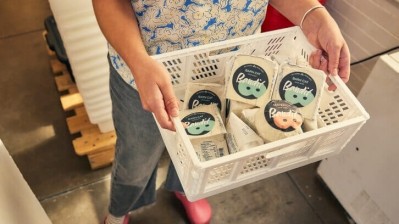PBFA: Plant-based sales slid in 2023, but ‘with ample space & signage’ units, dollars increase

According to PBFA’s latest ‘Plant-Based Foods State of the Marketplace,’ published this week, sales of plant-based foods fell 2.2% to $8.1b in 2023 compared to $8.2b the prior year. On a two-year stack, sales were up 3.8%, reflecting a 2% compound annual growth rate that takes into account a 5.9% increase in sales between 2021 and 2022.
The drop in sales comes even though prices were up across categories – a formula that in prior years buoyed sales while sacrificing volume. After several years of absorbing higher prices, however, many consumers began to pull back this year – either spending less or continuing to buy less with the same amount as prior years. Deal hunting also increased among price-sensitive shoppers, many of whom sought lower priced products even if it meant trading down.
Against this backdrop, the average retail price of plant-based products increased more quickly than their animal-based counterparts in butter, eggs, meat and milk, but more slowly in the creamer, ice cream and yogurt categories. Price hikes for cheese and non-dairy cheese were even, according to PBFA.
The report found prices for plant-based butter surged about 11% compared to 9% for its animal-counterpart, while prices for eggs increased about 9% vs. 7%, plant-based meat about 10% vs. 3% for animal-based meat and prices for non-dairy milk climbed about 9% vs. 1% for dairy milk.
Alternatively, prices for animal-based creamer spiked twice as much as plant-based creamer at about 12% vs. 6%, and twice as much for ice cream at about 10% for dairy-based ice cream and 5% for plant-based alternatives. Animal-based yogurt increased about 12% compared to a 9% increase in prices for plant-based options.
[Editor’s note: Learn more about how plant-based products are performing, including what types of products consumers are looking for and merchandising strategies to better engage shoppers at FoodNavigator-USA’s upcoming free webinar – Plant Based 3.0: Emerging from the trough of disillusionment, on May 29. Get all the details and register HERE.]
Could innovation help overcome price hikes to engage more consumers, drive sales?
The price hikes, while not unique to plant-based, may have taken a toll on the industry’s dollar share, but PBFA reports optimism about ongoing consumer interest in a range of categories and new forms and products. And it stressed that when plant-based foods are easy for consumers to find, they buy more – both in units and dollar sales.
According to the report, plant-based dollar share fell 0.2% to 3.8% across all markets, but it maintained a strong – albeit slightly smaller year-over-year share – in select markets, including natural enhanced markets, where it captured 18.4% of the market (down 1.6% from last year).
Looking closer at channels, PBFA reports sales of plant-based products in foodservice and e-commerce climbed notably in recent years – suggesting “when barriers are removed and plant-based options are expanded” then sales and consumer engagement increase, according to the association.
For example, it noted, e-commerce sales of plant-based foods increased 16.4% over three years to $394m in 2023 and captured 6.8% of online market share compared to 3.8% in retail.
“Without the limitations of shelf space, e-commerce platforms hold significant potential for plant-based growth,” PBFA noted in an e-mail.
The report also underscored the importance of innovation in driving sales and consumer engagement.
For example, it found shopper interest in several forms of plant-based meat continued to grow, including for shreds, chunks and strips, sales of which increased 9.7% to $81m in 2023. Sales of fillets, steaks and cutlets also increased 17.2% off a smaller base to $27m in the same period, according to the report.






















